Fall
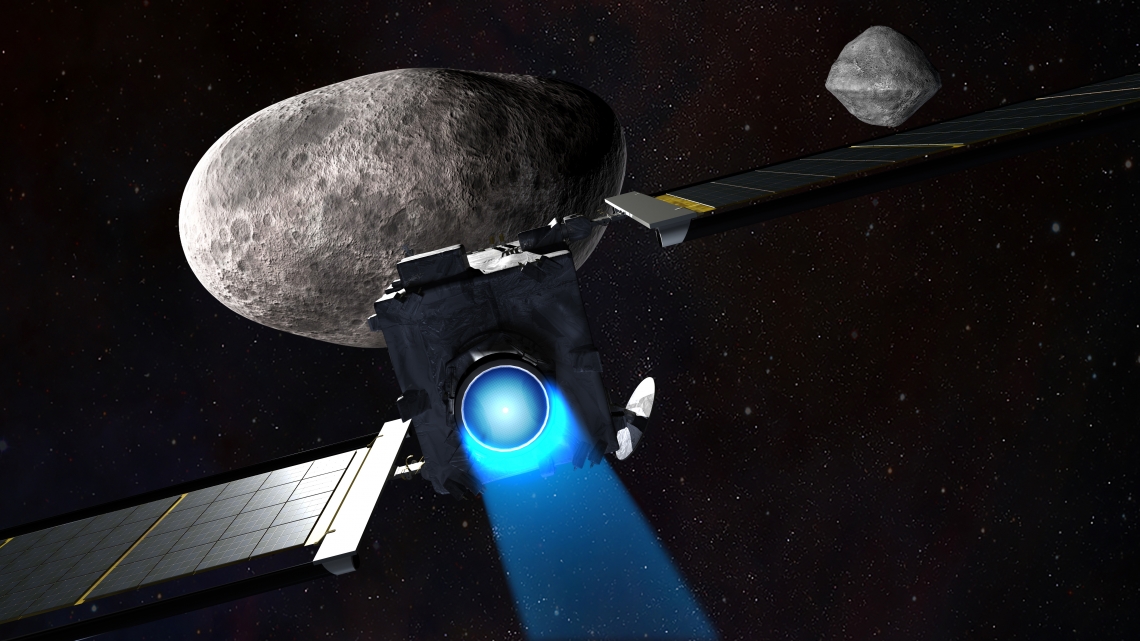
On Sept. 26, 2022, NASA's Double Asteroid Redirection Test (DART) mission spacecraft slammed into asteroid Dimorphos, giving scientists the opportunity to study how the impact altered its orbit around its larger twin, Didymos. DART launched on Nov. 24, 2021, with the aim of testing technology that could redirect asteroids that potentially threaten life on Earth.
But it was on a spring night in 1996 that a camera on the University of Arizona Steward Observatory's 36-inch telescope atop Kitt Peak captured three important images of a bright object sweeping across a backdrop of seemingly static stars. The object turned out to be a half-mile-wide, potentially hazardous near-Earth asteroid, caught on camera by Joseph Montani, a member of the university's Spacewatch group at LPL. Originally dubbed 1996 GT, the asteroid would later be renamed Didymos – Greek for "twin" – at Montani's suggestion. The name was inspired by the discovery in 2003 that the asteroid has a small companion, only 525 feet across.
Spacewatch is led by principal investigator Melissa Brucker. She is also on the science investigation team for DART. Spacewatch and other research groups plan to collect data on the light reflected from the two asteroids after impact. "We'll take a long series of images to measure the brightness of the system over time. Didymos and Dimorphos will look brighter when they're next to each other than when one is in front. In a series of images, we will be able to determine how long it takes Dimorphos to orbit Didymos," Brucker said. "Working on this mission is very exciting. I've been working on near-Earth asteroid tracking for eight years, so being able to participate in the first planetary defense demonstration is a really great opportunity."
Spacewatch was founded by LPL planetary scientists Tom Gehrels and Robert S. McMillan in 1980. The original goal of Spacewatch was to survey and discover small objects orbiting the sun, such as asteroids and comets, to better understand the evolution of the solar system. Spacewatch started shifting focus in 1998 and now follows up on discoveries made by astronomical surveys, such as LPL's Catalina Sky Survey, by monitoring the positions and movement of newly discovered potentially hazardous objects so that they do not become lost.
Spacewatch continues to use the Steward Observatory 0.9-meter (36-inch) telescope atop Kitt Peak, as well as the LPL 1.8-meter (72-inch) telescope, which has been operational on Kitt Peak since 2002. As one of the longest running asteroid tracking groups, Spacewatch can claim many firsts. It was the first group to use a charge-coupled device (CCD) camera to routinely survey the sky for comets and asteroids. It also claims the first CCD-discovered near-Earth asteroid, 1989 UP (now called 496816), and comet, dubbed 125P/1991 R2 Spacewatch. Spacewatch was also the first astronomical group to develop automated, real-time software for moving-object detection and the first to discover a near-Earth asteroid by software – 1990 SS (now called 11885 Summanus). Between May 1984 and June 2022, using UArizona telescopes on Kitt Peak, Spacewatch submitted 15,777,248 astrometric records of asteroids and comets to the Minor Planet Center. Of those 151,805 were of 15,072 unique near-Earth objects, including 1,883 potentially hazardous objects.
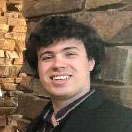
Senior Nick McFarlin is majoring in Ecology and Evolutionary Biology with a minor in Astrobiology. He is interested in unanswered questions like "How did life originate on Earth?" and "Is there life elsewhere?" After graduation, Nick plans to become a researcher with the possibility of attending graduate school in a biology related field and perhaps someday working at NASA.
Nick's favorite astrobiology class was GEOS 484, Coevolution of the Earth and Biosphere. It was unique for being a small, interdisciplinary class that had students read research papers that dealt with nearly every type of science; in that way, it felt to Nick more like a graduate course. And, says Nick, "There were also three field trips that were really cool." Nick is currently involved with a vertically integrated project mostly associated with the Department of Hydrology and Atmospheric Sciences. The project is working to determine whether a model developed in the 1980s for the timing of flowering of Sonoran desert plants is still a valid one; depending on results, project researchers will question whether changes can attributed to climate change.
In his spare time, Nick sings and plays the drums and eventually would like to produce his own music. He also enjoys trivia and MarioKart!

Dr. Reddy joined LPL as an assistant professor in 2016. His research focuses on understanding the behavior of space objects (natural and artificial) using a range of Earth and space-based assets. His work on natural moving objects (asteroids, near-Earth objects) is directed towards their characterization for impact hazard assessment/mitigation, asteroid-meteorite link and resource utilization. To support this effort, Dr. Reddy uses the NASA Infrared Telescope Facility on Mauna Kea, Hawai’i.
The orbital space around the Earth is an invaluable resource that is increasingly becoming congested, contested, and competitive with the ever increasing threat from artificial and our adversaries. Dr. Reddy uses the same techniques used to characterize asteroid to study the behavior of artificial objects to identify their nature, intent and origin. He is Director of the University of Arizona's Space Safety, Security and Sustainability Center (Space4).
In August, Assistant Professors Jessica Barnes and Daniella DellaGiustina were recognized with a Women of Impact award by the University of Arizona's Office of Research, Innovation & Impact. Criteria for selection to this inaugural class of honorees included commitment to the mission and values of the university, an application of skills toward discovery and innovation, the enrichment of the community, and the empowerment of others to ensure lasting change.
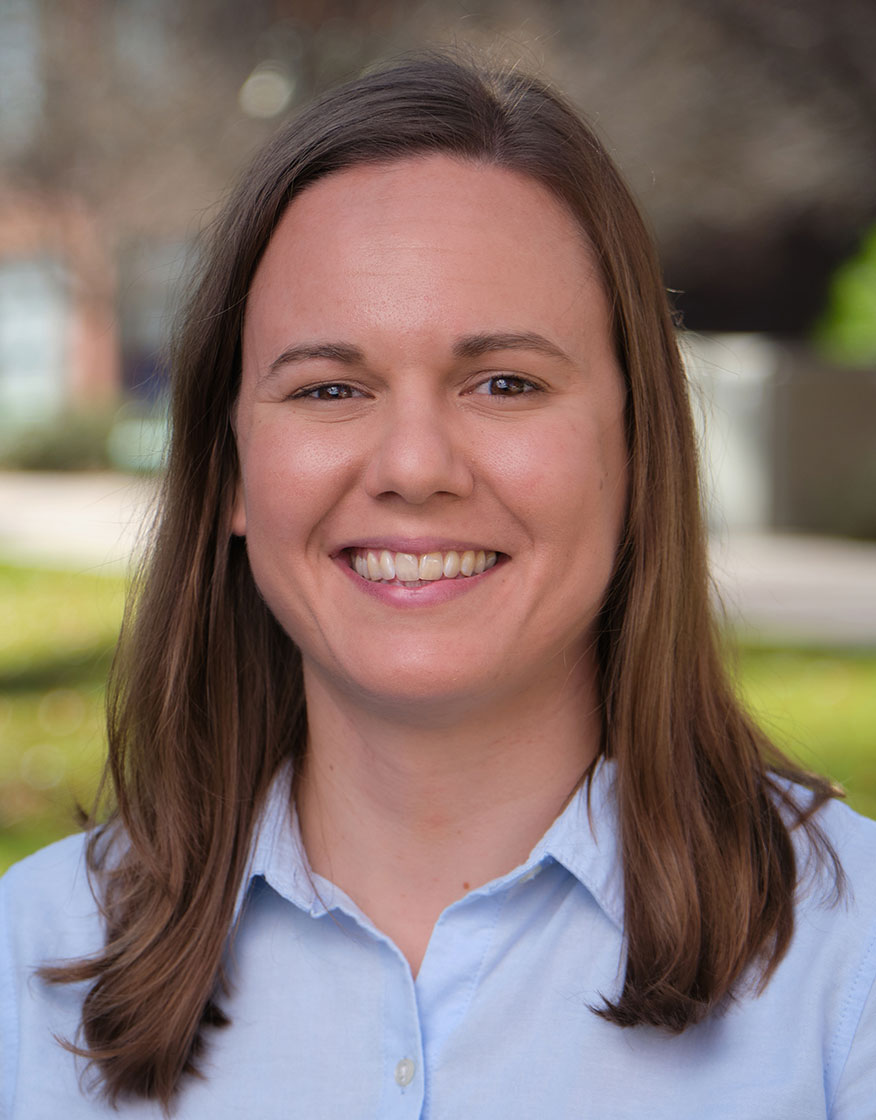
Professor Jessica Barnes researches the origin and evolution of volatiles in the inner Solar System using nano and microanalytical techniques to study mineralogy, geochemistry, and petrological histories of extraterrestrial materials. She is preparing for the analysis of samples from asteroid Bennu, collected by the OSIRIS-REx mission. This much anticipated analysis is in part supported by a $1.5M gift that enabled the purchase of a nanoscale secondary ion mass spectrometer. The contribution arose partly from admiration for Barnes' expertise in sample analysis and from an interest in supporting an early-career female scientist. In 2019, Professor Barnes was selected to receive funding to study previously unopened lunar samples collected by Apollo 17. She won a NASA Early Career Award in 2019, supporting and advancing her research and professional development. Also in 2019, Nature magazine named Professor Barnes as one of five young scientists who will shape the next 50 years of lunar research and exploration.
The Meteoritical Society has recognized her work by selecting her for the the 2023 Nier Prize, awarded to young scientists for outstanding research in meteoritics.
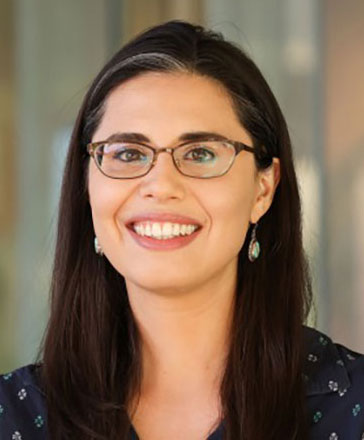
Professor Daniella DellaGiustina is Deputy Principal Investigator for the OSIRIS-REx mission. She is responsible for oversight of extended mission activities. She is also Principal Investigator for OSIRIS-APEX, which will swing by near-Earth asteroid Apophis in 2029 for an 18-month campaign of investigation and discovery.
Professor DellaGiustina received her Ph.D. in Geosciences from UArizona in 2021 and holds a M.S. in Computational Physics (University of Alaska Fairbanks) and a B.S. in Physics from UArizona. She investigates the surface and near-surface structure of small airless worlds across the solar system by developing and utilizing remote-sensing and geophysical instruments deployed by spacecraft. She enjoys field testing and validating instrumentation techniques at analog sites across on Earth and is especially interested in water distribution throughout the solar system and how to establish its presence using remote-sensing and in-situ techniques.
In October 2022, Popular Science magazine named her as one of the brilliant 10 top up-and-coming minds in science, taking on the biggest challenges and succeeding.
On December 13, NASA’s flying observatory, the Stratospheric Observatory for Infrared Astronomy (SOFIA), flew over the Kuiper Space Sciences building and the UArizona mall, concluding its final flight to Davis Monthan Air Force Base before becoming an exhibit at the Pima Air and Space Museum.
SOFIA replaced the venerable Kuiper Airborne Observatory. Many LPL researchers collected infrared observations of Solar System objects on these flying observatories over the years.
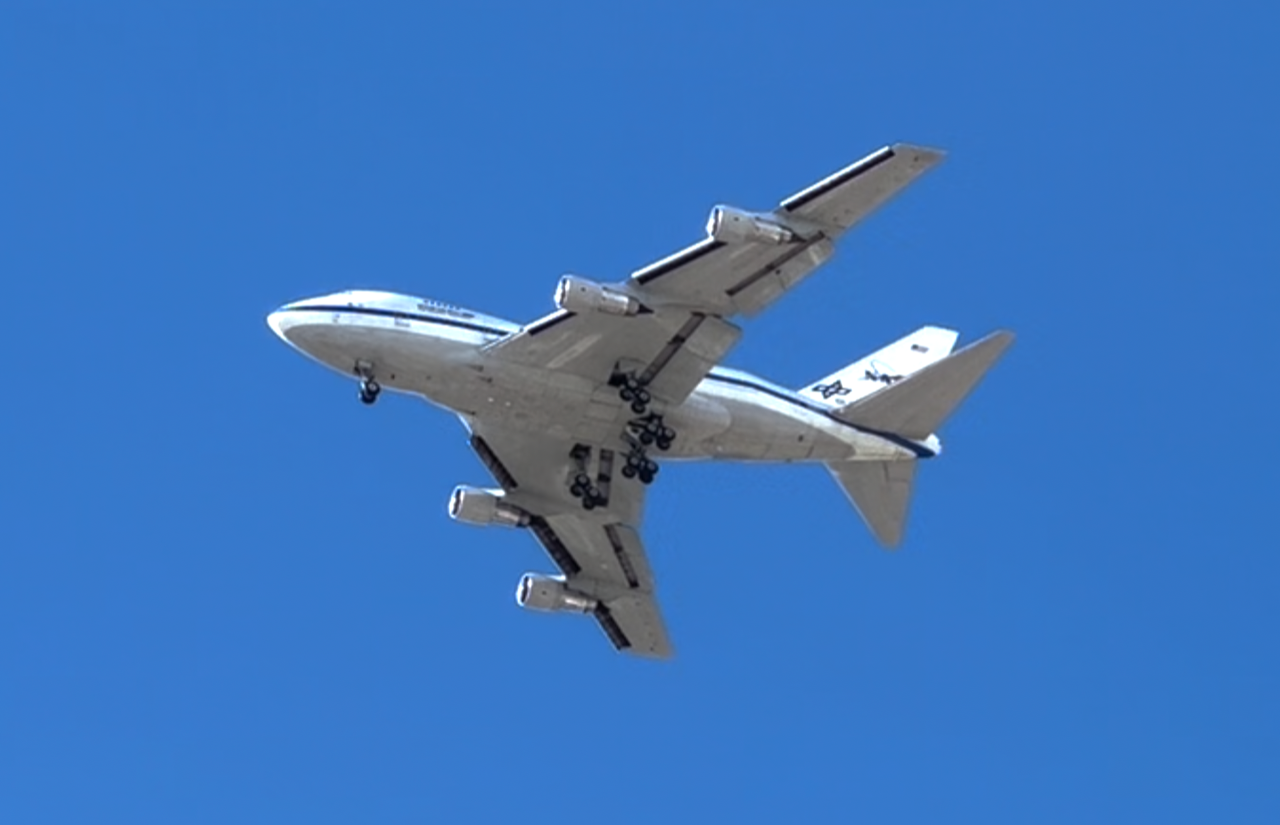
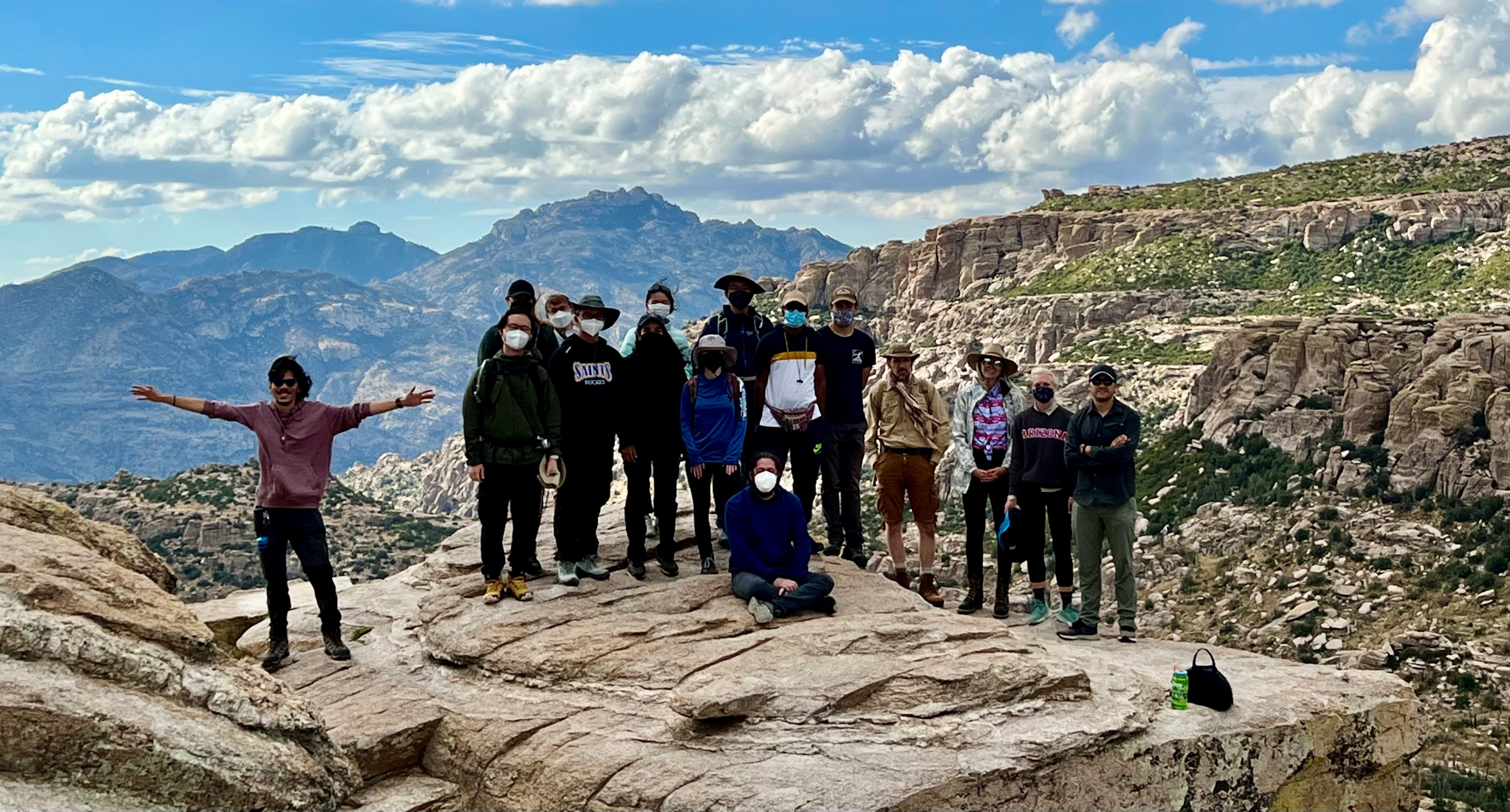
By Christopher Hamilton
This semester, the PTYS 590 Planetary Geology Field Studies course intended to explore sedimentary units in Northern Arizona, but unfortunately—due to a last-minute case of COVID-19—the main field trip was cancelled. The health and safety of our students is paramount and the potential risk for developing an outbreak was too great to undertake a five-day trip to a remote field site.
Instead, the class took a daytrip to explore highlights in the Tucson area. LPL’s Eric Christensen and Carson Fuls were fantastic in arranging an impromptu visit to UArizona's magnificent telescopes on Mt. Lemmon, with Carson providing an outstanding tour of the Catalina Sky Survey’s 1.5-meter (60-inch) f/1.6 telescope. The Catalina Sky Survey is responsible for the discovery of nearly half the total known near-Earth objects (NEO) population and it was incredible to not only see the massive telescope, but also to learn about the lightning-fast processing techniques used to identify the NEOs in near-real time.
After descending the mountain—stopping at several magnificent overlooks from the Catalina mountains along the way—the class visited Tanque Verde Falls for a hike to explore the local geology and natural beauty of the Tucson area.
Later in the semester, the class met for an off-campus social event to get to know one another better and hear the excellent presentations that the students had prepared for the field trip. In the coming year, we plan to return to Northern Arizona and anticipate this will be an excellent opportunity for students to explore aeolian landforms deposited during the time of Pangea as well as more recent products of fluvial erosion—ranging from slot canyons to Glen Canyon, Monument Valley, the Painted Desert, Petrified Forest, and aspects of Native American history and culture in the region.
In the meantime, students are preparing for an exciting field trip to the Big Island of Hawai'i in March 2023, which will be led by Shane Byrne, Christopher Hamilton, and Brett Carr. Students will explore the island's incredible volcanic landscapes---including products of the 2018 Kīlauea eruption in the East Rift Zone and this year’s new eruption from Mauna Loa (the world’s largest active volcano)---as a planetary analog.
You can support future field study opportunities by donating to the Wilkening-Sill endowment.
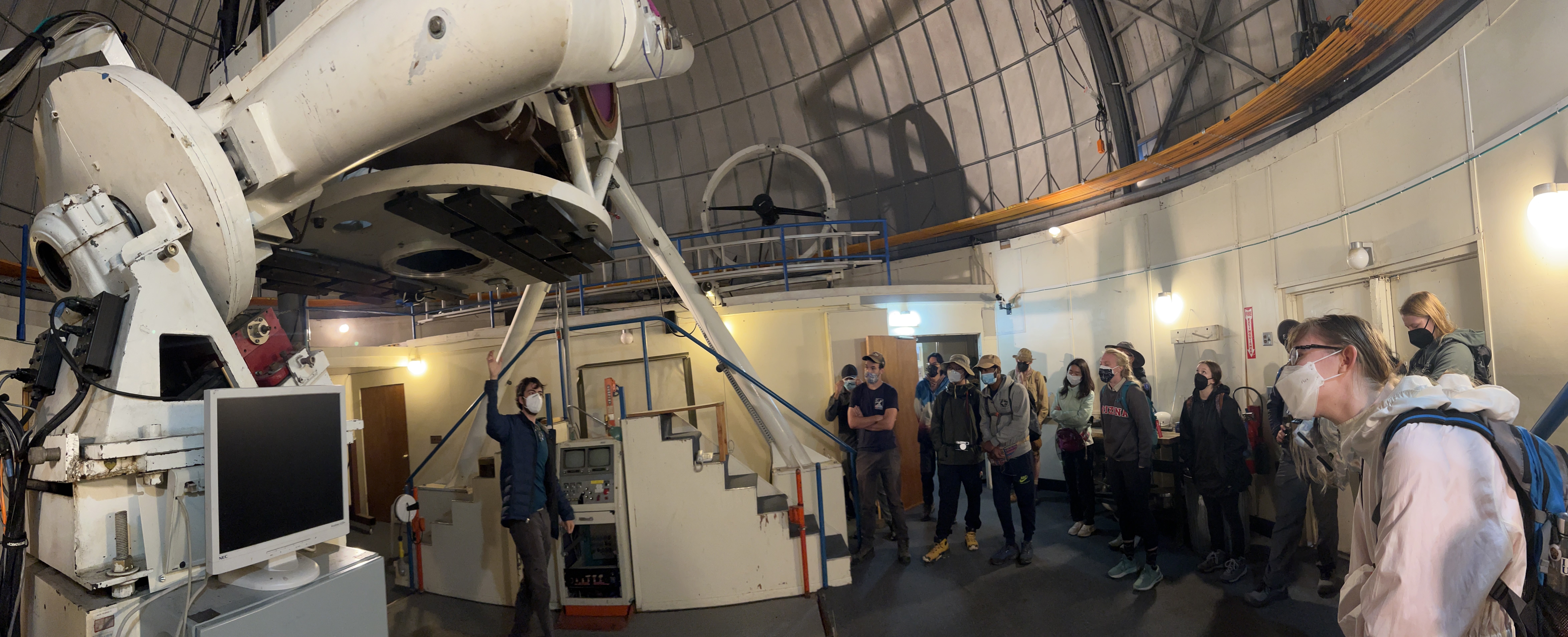
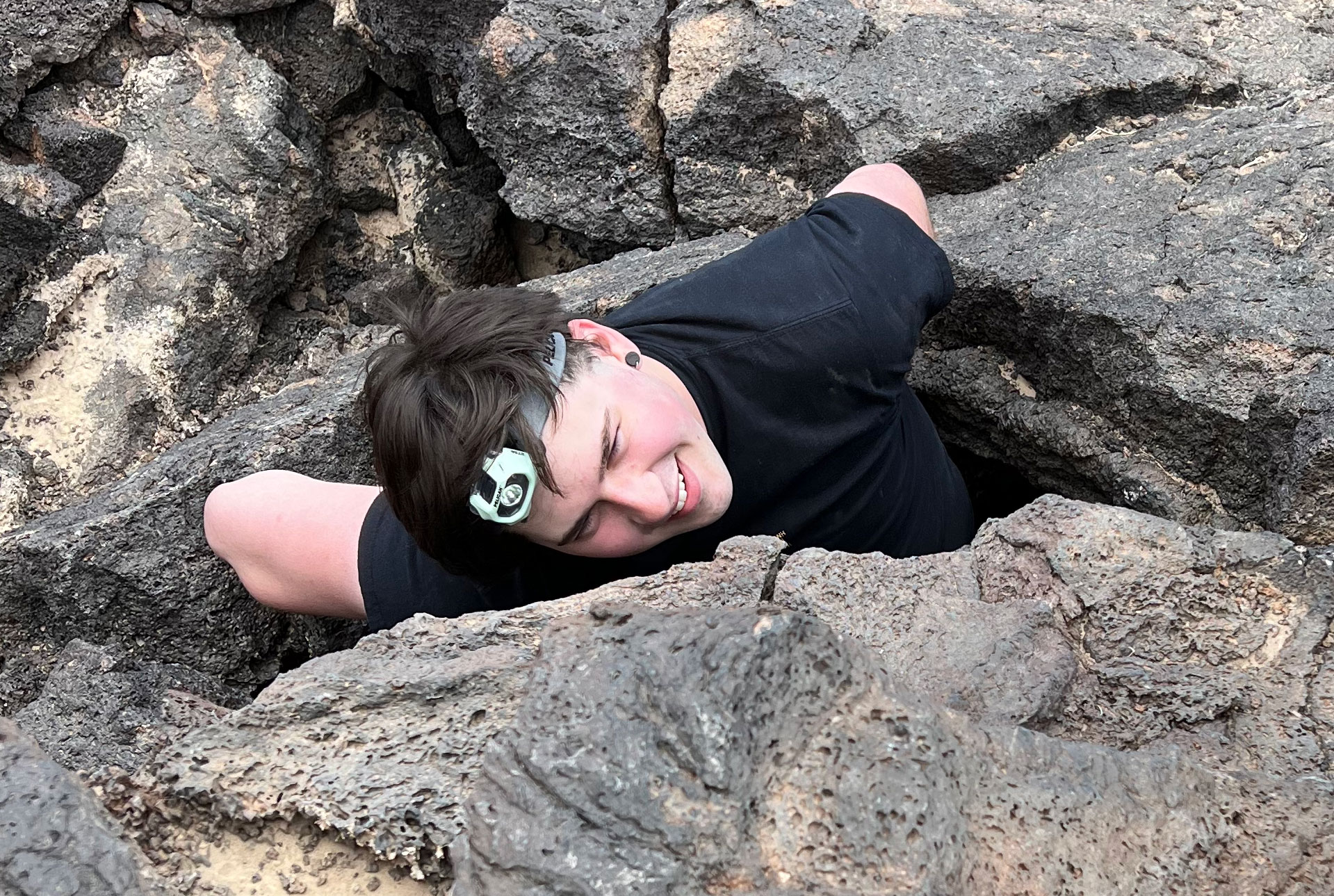 Reed Spurling is a senior majoring in Aerospace Engineering with minors in Math and Planetary Sciences (PTYS). Favorite PTYS courses include PTYS 411, Geology and Geophysics of the Solar System and PTYS 442, Mars. Another favorite was Regents' Professor Dante Lauretta's Spacecraft Mission Design class; for this course, students were split into three teams to design concepts for robotic solar system missions. This classwork enabled Reed to successfully apply for a summer internship at KinetX, a company that navigates the Lucy and New Horizons solar system missions for NASA.
Reed Spurling is a senior majoring in Aerospace Engineering with minors in Math and Planetary Sciences (PTYS). Favorite PTYS courses include PTYS 411, Geology and Geophysics of the Solar System and PTYS 442, Mars. Another favorite was Regents' Professor Dante Lauretta's Spacecraft Mission Design class; for this course, students were split into three teams to design concepts for robotic solar system missions. This classwork enabled Reed to successfully apply for a summer internship at KinetX, a company that navigates the Lucy and New Horizons solar system missions for NASA.
Reed works with Drs. Virginia Gulick and Stefano Nerozzi to analyze flood channel systems on Mars. He maps the locations and sizes of impact craters in and around these channels and then runs statistics on the data to determine an approximate age for the channels. Reed also works with Aerospace professors Sergey Shkarayev and Adrien Bouskela on communication systems for dynamic soaring sailplane gliders. Engineless sailplanes should be able to fly for extended periods of time above Earth, Mars, Venus, Titan, and other planets with sufficient atmospheres, bridging gaps in observing capabilities between orbiting missions and surface missions.
Reed is the founder of the UArizona Near Space Club and is planning on a career in solar system exploration. When not in class or mapping craters, Reed likes to cook and read.
Pagination
- Previous page
- Page 20
- Next page

